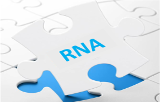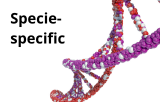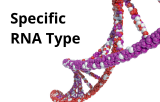Biorbyt
 |
||
Products for advancing your discoveries From antibodies to proteins, biochemicals to ELISA kits, Biorbyt's high quality research products are available for you to enable world class research and contribution to a deeper understanding of life sciences.
A comprehensive catalog of life science research products covering the areas of Neuroscience, Signal transduction, Cell Biology, Cancer Metabolism, Cardiovascular and others
Product range :
Choose from over 100,000 primary antibodies and over 2,000 secondary antibodies. Monoclonals and polyclonals tested in a number of applications - WB, ELISA, IHC, FACS and many more.
Choose from over 7,000 proteins and over 400 active proteins. All of our proteins have been validated for use in ELISAs, WB and IHC-P
We have over 10,000 biochemicals for use in your research.
We have over 2,000 ELISA kits covering many research areas . Each kit comes with a fully detailed protocol and examples of expected results.
Website : https://www.biorbyt.com/
| ||

RNA extraction
Nucleic acid extraction methods are essential to molecular biology and are commonly used in many medical and biological science applications.
Nucleic acid extraction can be divided into 3 steps, which can be optimized according to the type of sample and the downstream applications for which the nucleic acids will be used. These steps are as follows:
1) Rupture of tissue and cell structures
2) Removal of proteins, lipids and other contaminants from nucleic acids
3) Transfer the nucleic acids to water or a buffer solution that will preserve them without interfering with subsequent work.
Nucleic acid extraction methods can be classified into two different types :
- Solution methods (such as the phenol-chloroform method)
- Methods based on the solid phase (such as magnetic beads or centrifugation columns).
Solid-phase extraction methods work by causing nucleic acids to bind to solid supports, such as magnetic beads coated with silica or other materials. The beads (or other supports) are then washed with alcohol to remove contaminants. The support is then washed with a liquid that makes the nucleic acids soluble again, which releases the DNA from the support in a process known as elution. A simple method is to add a solution containing a chaotrope to the crude nucleic acid extract. Chaotropic agents are molecules that disrupt the hydrogen bonding network between water molecules. In the presence of chaotropes, nucleic acids are previously much less soluble and bind to glass, silica-covered magnetic beads and other solid supports - allowing them to be easily separated from contaminants. Solid-phase extraction methods may also depend on selective binding of DNA and RNA to ion exchange resins or other chemicals.



